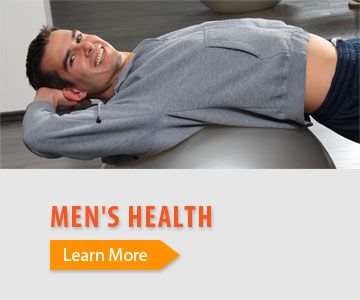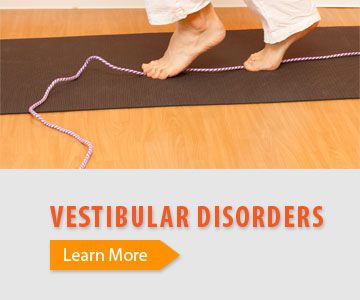Women's Health Physical Therapy

- Do you leak urine while coughing, laughing, sneezing or lifting weights?
- Do you experience a burning sensation during urination?
- Do you have to wake up several times each night to urinate?
- Do you have groin, rectum, vaginal, pubic area or tailbone pain?
- Do you have pain during intimacy?
- Do you suffer from infertility?
- Do you feel discomfort or pressure in your lower abdomen, especially while standing or walking?
- Do you feel as if your "insides are out?"
- Are you pregnant and having pain in your back, hips, or groin?
- Do you suffer from excess gas, bloating, constipation, or diarrhea?
- Do you have problems holding your bowels?
If you answered YES to any of these questions, you should know that in many cases your problem can be treated with Women’s Health and/or Pelvic Floor Physical Therapy.
Pelvic floor is a term we use to describe the muscles, ligaments, and connective tissue from the pubic bone to tail bone that support bowel, bladder, intestines, uterus, vagina, and rectum. Not only does the pelvic floor prevent these organs from moving downwards, or falling out, but it also plays a very important role in making the organs function properly. Orthopedic injuries can also contribute to dysfunction of the pelvic floor. Because the muscles of the pelvic floor are controlled by nerves, any medical condition or injury that impacts the health of nerves (including diabetes, Parkinson’s disease, stroke, back surgery, spinal stenosis, or childbirth trauma) can result in weakness, or decreased control of the pelvic floor muscles.
Our women's health physical therapist, Bella Kavalerchik, PT, is highly specialized in Pelvic Floor Physical Therapy and is devoted to providing one-to-one care and a customized treatment program for your condition.
Treatment may include manual therapy, specific exercises to relax, stretch, or strengthen your pelvic floor muscles, biofeedback, laser therapy, and electrical stimulation.
Women’s Health Physical Therapy is a very effective treatment choice for:
Pelvic Floor Pain and Dysfunction
- Vulvodynia (pain in vulva)
- Vestibulitis (pain at vaginal opening)
- Pudendal Neuralgia (stabbing and/or burning nerve pain in genitals, sitting bones, and/or anus)
- Anal and/or Rectal pain
- Premenopausal and Menopausal conditions (vaginal dryness, vaginal tissue degeneration, and pain)
- Post-Hysterectomy Adhesions and Deconditioning
- Pelvic Inflammatory Diseases (PID)
- Lichen Sclerosis and Lichen Planus (autoimmune diseases affecting vulva and vaginal skin)
- Coccydynia (tail bone pain)
- Pain and dysfunction associated with Endometriosis
- Infertility
Sexual Dysfunction
- Dyspareunia (pain during sexual intercourse)
- Vaginismus (involuntary spasm associated with vaginal penetration; i.e., tampons, menstrual cups, sexual intercourse, gynecological examination/pap tests, etc.)
- Persistent Genital Arousal Disorder, PGAD (spontaneous, persistent, and uncontrollable genital arousal, with or without orgasm or genital engorgement, unrelated to any feelings of sexual desire)
Pelvic Organ Prolapse
- Cystocele (bladder prolapse)
- Uterocele (uterus prolapse)
- Rectocele (rectum prolapse)
- Enterocele (intestinal prolapse)
Urological and Gastrointestinal Disorders of Musculoskeletal Origin
- Urinary Incontinence (stress, urge, or mixed)
- Overactive Bladder (constant strong need to urinate)
- Urinary Hesitancy (urine flow doesn’t start easily)
- Urinary Retention (not fully emptying the bladder)
- Interstitial Cystitis (pain with urination and/or bladder pain without infection)
- Abdominal Pain and/or Adhesions
- Constipation
- Pain with Defecation
- Excessive Gas and Abdominal Bloating
- Irritable Bowel Syndrome (IBS)
- Irritable Bowel Disease (IBD)
- Hemorrhoids
- Fecal Incontinence
- Post-Mastectomy/Breast Reconstruction Care
- Osteoporosis, Fibromyalgia
- Pregnancy and Postpartum Conditions
During pregnancy, posture and alignment change with an expanded uterus and added weight on the front of the body’s frame. Body ligaments become loose and joints bocome more flexible. All that and fluid retention in different areas of the body makes a pregnant woman prone to sprains, strains and tendinitis (for example, carpal tunnel syndrome, tennis or Golfer's elbow, plantar fasciitis, etc.). Pregnant women may experience pain in the joints of the pelvis, spine, hips, back, headaches, and numbness in the extremities. Weak abdominals result in pain during moving and lifting.
During the postpartum period, hormone levels fluctuate causing musculoskeletal issues, such as excessive joint mobility, core muscle weakness, and altered spinal mobility and function. Physical therapy can help to reduce pain and muscle spasms and restore normal body alignment.
We can help women during pregnancy and postpartum with:
- Back Pain
- Sacroiliac Pain
- Sciatica
- Diastasis Recti (gap between the two sides of the rectus abdominis; i.e., your “six pack” muscle that runs through the center of the abdomen)
- Preparation for labor (strengthening exercises during pregnancy, positions, and breathing techniques during the labor itself)
We can treat you for
- abdominal cramps during pregnancy
- abdominal muscle separation
- bowel incontinence
- Physical Therapy for Constipation
- cystocele treatment
- diastasis recti rehab
- dripping urine while exercising
- dripping urine while walking
- dyspareunia treatment
- hemorrhoids treatment
- kegel exercise
- loosing bowels
- loosing urine
- Organ Prolapse
- pain during intercorse
- pain during pregnancy
- Pain in vulva
- peeing during exercise
- peeing while walking
- pelvic floor dysfunction
- pelvic floor pain
- pelvic floor Physical Therapy
- pelvic floor weakness
- Physical Therapy for postpartum
- Physical Therapy for pregnancy
- pressure in lower abdomen
- rectal prolapse
- rectocele physical therapy
- stomach problems during pregnancy
- stool incontinence
- tummy ache early pregnancy
- ureterocele physical therapy
- Urinary leakage
- urine leak with coughing
- urine leak with laughing
- urine leak with sneezing
- vaginal burning
- vaginal itching
- vaginal pain
- vulvodynia treatment
- weak pelvic floor
- women's pelvic floor dysfunction
- women's Pelvic Floor Muscle Dysfunction
- women's Pelvic Floor Physical Therapy










